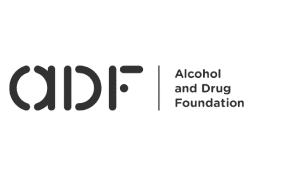Since the ACT’s drug law reform announcement in late 2022, there’s been a lot of talk about decriminalisation and other drug policy changes.
But what does it mean, how does it work and what are the risks and benefits?
What is decriminalisation?
Decriminalisation involves the removal of a criminal penalty for using or possessing small amounts of drugs.
There are two types of decriminalisation:
- In law (de jure): where possession and personal use aren’t a criminal offence. Instead of being charged, someone with a small amount of drugs may receive a fine, or referral to a health/treatment service – depending on the decriminalisation model used. This is the type of decriminalisation the ACT is introducing from October 2023.
- In practice (de facto): where personal use and possession is still a criminal offence, but police and courts can use their discretion when enforcing the law. For example, the police might issue a caution instead of charging someone with a small amount of cannabis.
Neither of these two options make it legal to sell or ‘deal’ drugs.
While all Australian states and territories have some form of in practice decriminalisation, only three (ACT, SA and the NT) have in law decriminalisation.
Decriminalisation vs legalisation
Decriminalisation isn’t the same as legalisation.
Legalisation is where drugs are regulated and allowed to be sold and bought according to government rules.
Examples of legal drugs include:
- alcohol, tobacco, caffeine and medications like Panadol in Australia and most other countries
- cannabis in Canada, Uruguay, South Africa, Jamaica, Malta and 21 US states.1
Decriminalisation across Australia
Most programs in Australia are ‘in practice’, not ‘in law’, and made up of:
- diversions: where instead of receiving a criminal conviction, someone found with drugs may be diverted from the justice system towards a treatment or education program
- cautions: where police issue a warning to the person instead of charging them with a crime
- fines: where the person can pay a fine to avoid a criminal charge of possession.2
In SA and NT, someone caught with small amounts of cannabis can be fined instead of being charged.3, 4
While in QLD, VIC and NSW, police may instead issue a caution or warning.5-7
And in VIC, SA and WA, some people can be diverted to a treatment or education program if caught possessing drugs other than cannabis.4, 6, 8
These practices are proven to:
- reduce rates of re-offending
- reduce costs of the criminal justice system
- improve health and wellbeing.2, 9
If we already have ‘in practice’ why implement ‘in law’?
Having decriminalisation ‘in practice’ means police, courts and service providers can use their discretion when deciding to allow someone to be diverted from the criminal justice system.10, 11
But this means diversions, cautions and fines aren’t always given out equally.
For example, this has resulted in police officers often charging people for a cannabis possession when a caution would be more appropriate.10, 11
Those from marginalised communities, especially young Indigenous people, are also less likely to be diverted for the same crime of possesion.10, 11 In NSW, police were found to be four times more likely to give cautions to non-Indigenous people.12
The current ‘in practice’ programs in Victoria are also more time-consuming for police than charging someone, increasing barriers to offering diversions.10
In WA, strict eligibility requirements also limit access to diversion programs.13
People in WA are the least likely in the country to be diverted for minor drug possession, despite having programs that cover all drugs, not just cannabis.13
SA has the highest rate of diversion, with 98% of people caught for possession/use being diverted from the criminal justice system – compared to 32% in WA.2
SA’s cannabis program is required by law, and is not up to police discretion.4
Having decriminalisation ‘in law’ rather than ‘in practice’ can increase equality and decrease administrative burdens for police.11
Other benefits include:
- reduces costs and burdens to the criminal justice system
- removes the negative consequences of minor drug use/possession, including stigma
- improves access to treatment for people experiencing dependence.14
What are the risks?
Decriminalisation isn’t a solution to drug-related harm on its own, and should be implemented along with increased investment in treatment.15
It also doesn’t address the supply or manufacture of illicit drugs. One of the risks of illicit drug use is that they’re unregulated, so we don’t know what’s mixed with them, or how strong they are. This increases the risk of overdose, injury and death.
To address this issue, other measures are required such as pill testing, or legalisation.16, 17
There’s also consistent evidence that decriminalisation doesn’t encourage drug use, or increase drug taking in the community.18
In fact, decriminalisation may have the opposite effect, as more people are able to access treatment for their dependence.19
Do Australians support it?
There’s widespread support for moving away from a law enforcement approach to drug use in Australia, towards a health response.
The latest Australian national drug survey found:
- only 22% of people think cannabis possession should be a criminal offence
- support for decriminalising ecstasy and cocaine increased between 2016-2019 (but remains much lower than cannabis)
- 41% of people were in favour of legalising cannabis (an increase from 26% in 2013)
- the most supported response to cannabis possession was ‘no action or a warning/caution’. For all other drugs most people supported ‘referral to treatment or education program’
- between 2016-2019 there was a decline in support for ‘prison sentence’ as a response across all drug types.20
More Info
To find out more about decriminalisation, legalisation and drug law reform check out these pages:
- Decriminalisation in detail
- Decriminalisation vs legalisation
- Drug policy reform – what’s it all about?
Source: https://adf.org.au/insights/decriminalisation-australia/

















